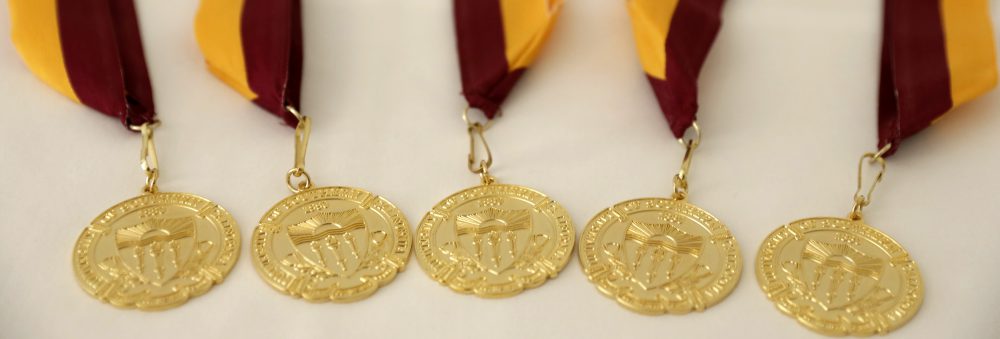Here is a difficult question—Do you think it is okay to insert a chip in someone’s brain if they have suffered a brain injury or have experienced a loss in brain function? Is it ethical to give that person a ‘chip in the brain’ or brain implant?
Professors from USC posed these questions to a group of Ph.D. students to spark a dialogue during the annual USC Annenberg Graduate Fellowship Micro Seminar Series on Friday, September 27. The topic of this particular seminar was “Narrative and Neural Implants: A Workshop on the Ethical Portrayal of Advanced Technologies” led by Professor Dong Song from the Viterbi School of Engineering.
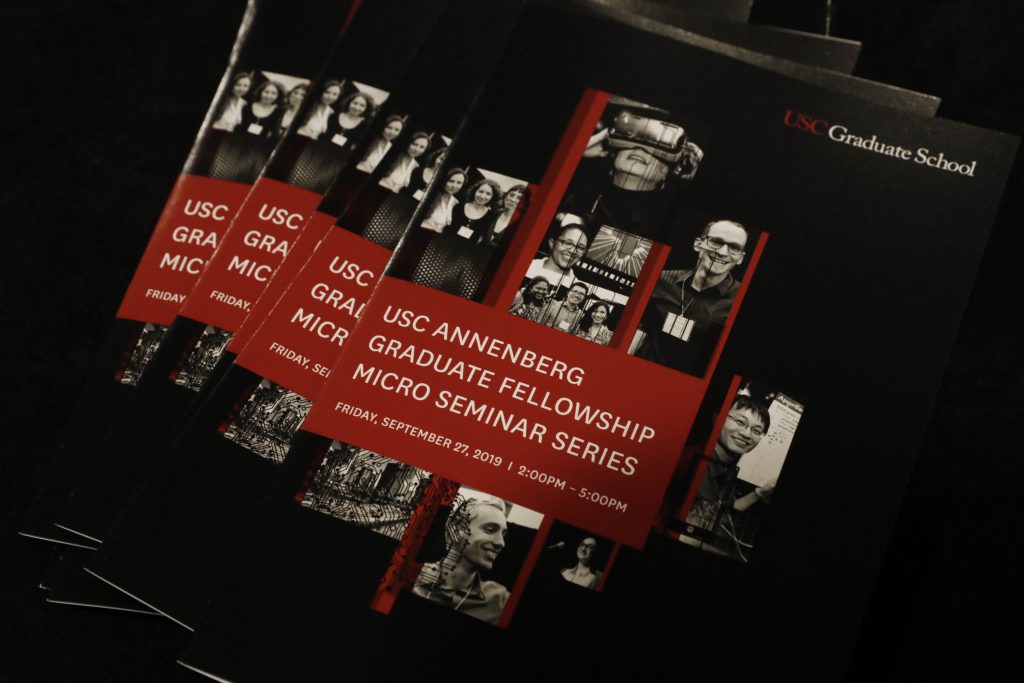
Photo by: Steve Cohn © 2019
The USC Annenberg Graduate Fellowship Micro Seminar Series is a one-day event featuring workshops taught by faculty members from the Annenberg School for Communications & Journalism, School of Cinematic Arts and Viterbi School of Engineering. The micro-seminars are designed for new and returning Annenberg Fellows. The seminars discuss special topics in communication, digital media research and creative practice and encourage collaboration between students and disciplines.
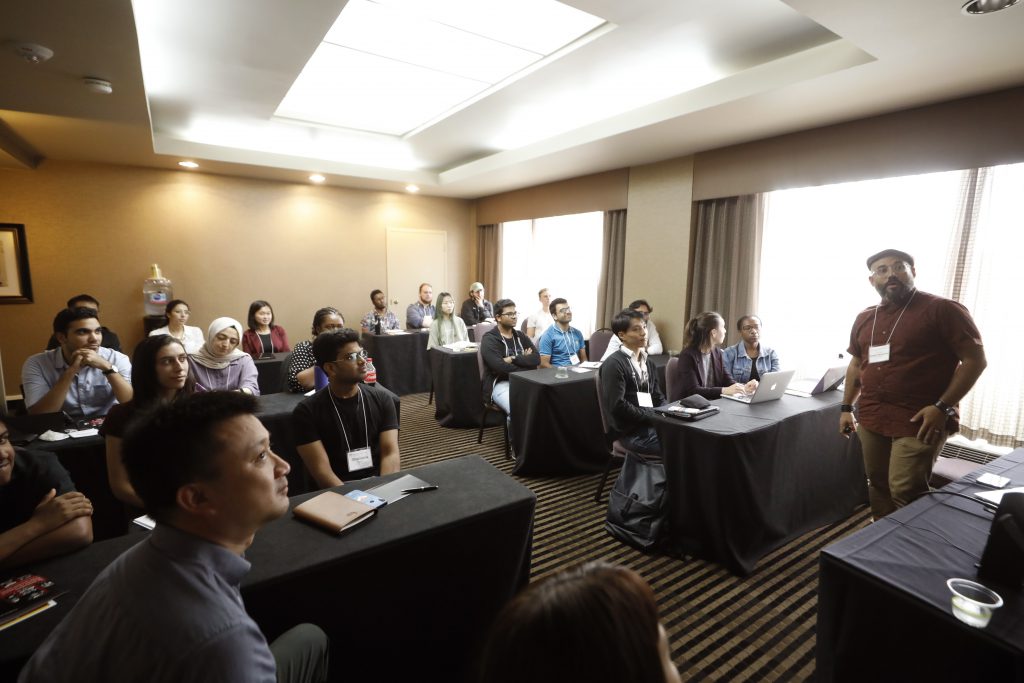
Photo by: Steve Cohn © 2019
Professor Dong Song’s seminar was unique because he included two other professors to help him discuss the implication of virtual reality technologies and how they can be used across different disciplines. The two other professors were Marientina Gotsis from the School of Cinematic Arts and Robert Hernandez from the Annenberg School for Communications & Journalism. Together, the faculty members shared their research and expertise on advanced technologies and the implications in their fields.
Professor Dong Song is a Research Associate Professor of Biomedical Engineering and the co-director of the USC Center for Neural Engineering. He has worked on technology to aid people with injuries to the hippocampus. Professor Marientina Gotsis is Associate Professor of Practice at the USC School of Cinematic Arts and the director for the Creative Media & Behavioral Health Center. She has worked with people who have suffered spinal cord injuries and has used virtual reality technology to help people with Parkinson’s. She has also worked on creating multi-sensory environments for people with severe dementia. Professor Robert Hernandez is Associate Professor of Professional Practice at the USC Annenberg School for Communication and Journalism. He is using virtual reality and advanced technology to tell stories and shape the future of journalism.
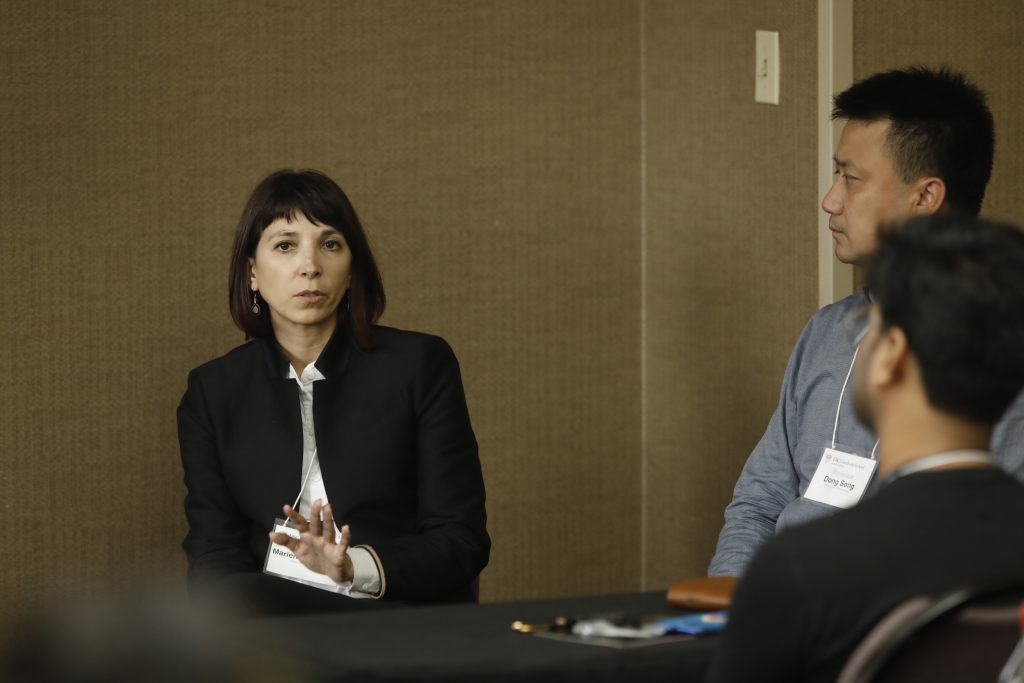
Students from all three schools attended the seminar and discussed the merits and pitfalls of advanced technologies. Students shared their thoughts on the power advanced technology has to help or hurt society.
Professor Dong Song’s seminar is just one example of the many interesting seminars offered. Other workshops offered included When the Dog Catches the Car: Getting and Using Data from Games taught by Professor Dmitri Williams of the Annenberg School for Communication and Journalism, Outrage & Empathy in Creating Media taught by Professor Pablo Frasconi of the School of Cinematic Arts, Post/Human/Cinema taught by Professor Holly Wills of the School of Cinematic Arts, AI, Networks and Society taught by Professor Myank Kejriwal of the Viterbi School of Engineering, and Fake News, Real Harm – Multiple Perspectives on Disinformation taught by Saty Raghavachary from the Viterbi School of Engineering.
Erin Brown, a student in the Strategic Public Relations program at the Annenberg School for Communication & Journalism, attended the Outrage & Empathy in Creating Media seminar and said there were some important lessons from the discussion.
“What I took away from the seminar is that it’s very difficult to be empathetic and it is something we all need to work on. No matter how good we feel we are at it or how much we connect with people, there’s always work that can be improved upon to increase our levels of empathy,” said Brown. “It’s not something that comes naturally to us, so it’s really something we need to focus on as people so that we can connect with each other better.”
Students from all seminars have the opportunity to follow-up with the professors throughout the school year and are encouraged to meet again in groups to discuss topics that came up during the seminars.
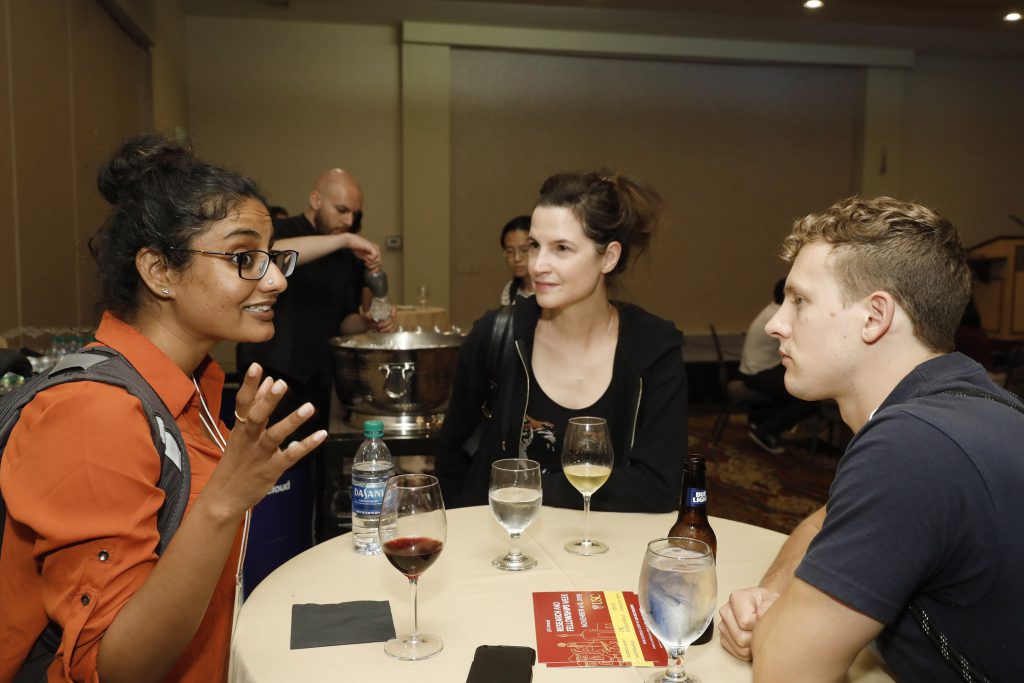
Students enjoy a reception following the seminars. Photo by: Steve Cohn © 2019 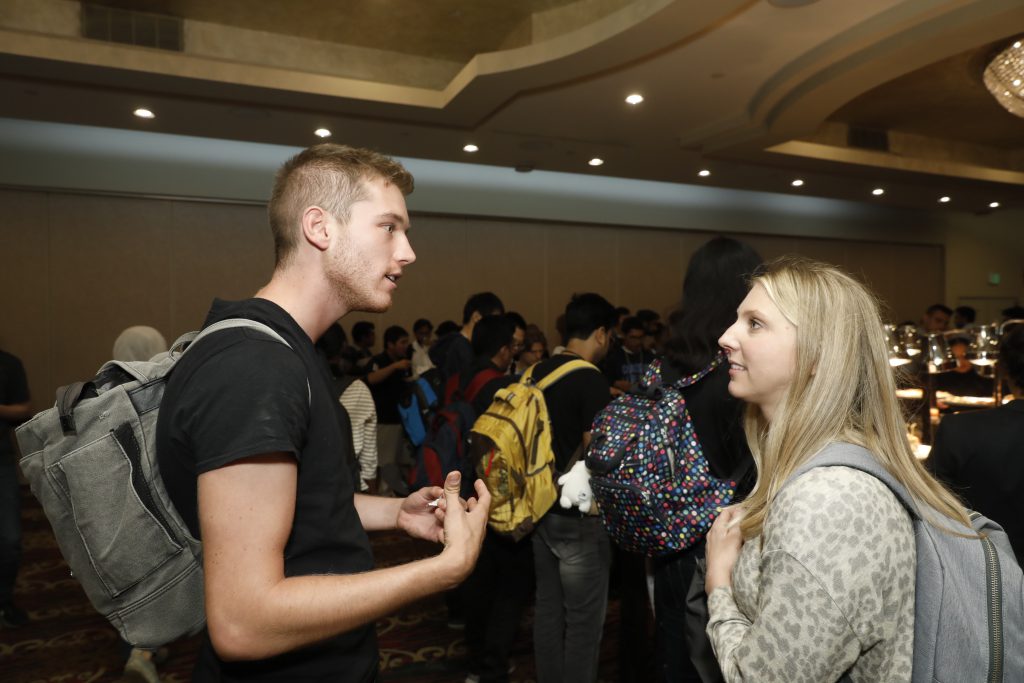
Students enjoy a reception following the seminars. Photo by: Steve Cohn © 2019 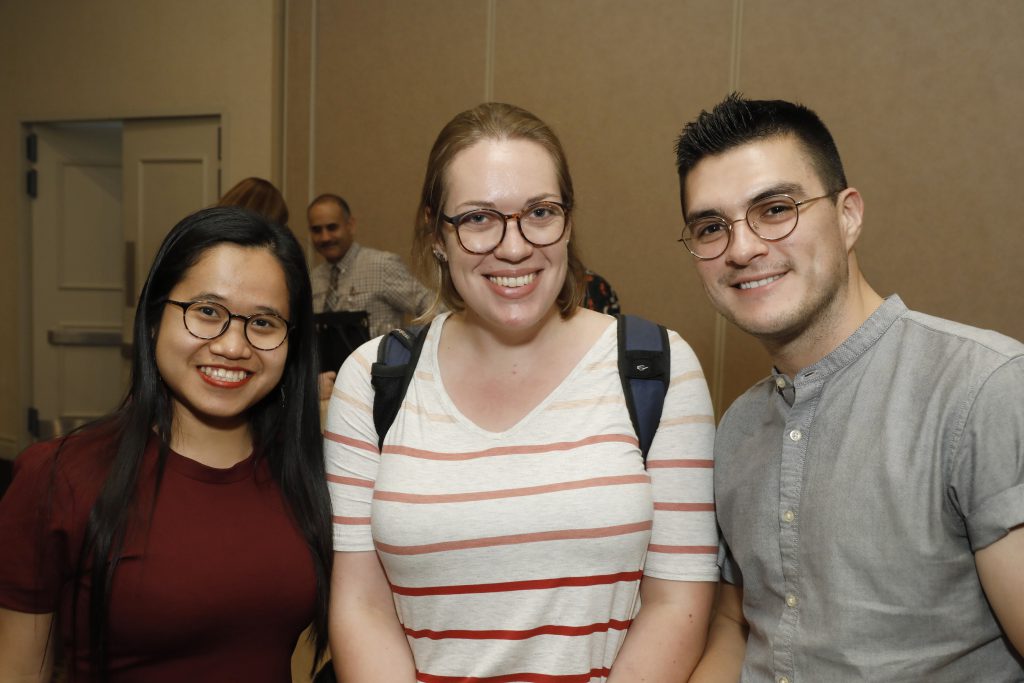
Students enjoy a reception following the seminars. Photo by: Steve Cohn © 2019 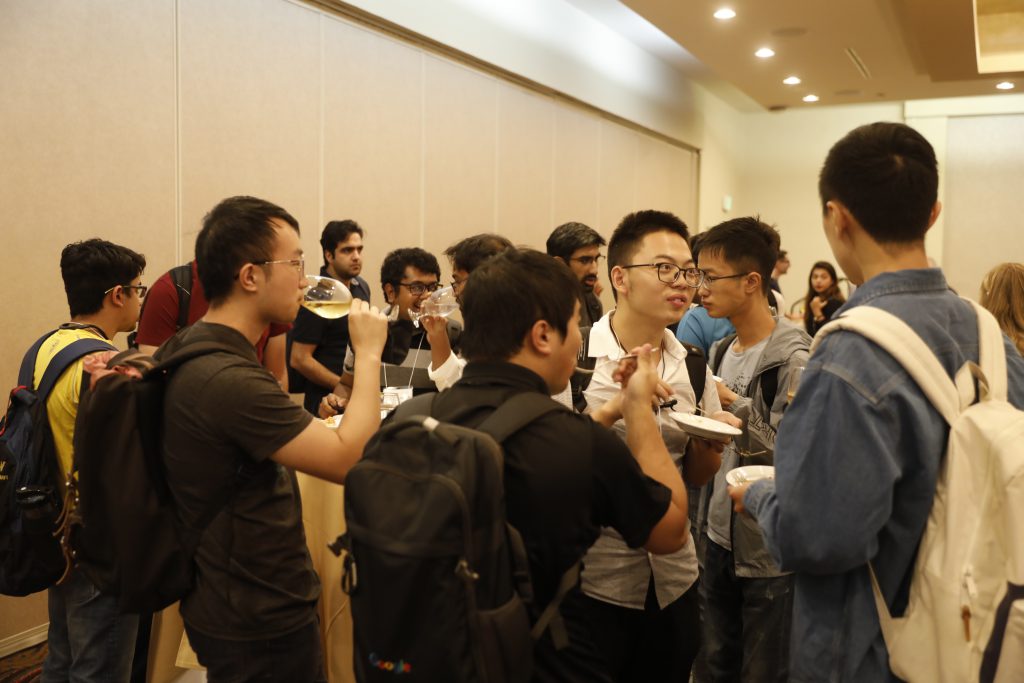
Students enjoy a reception following the seminars. Photo by: Steve Cohn © 2019
